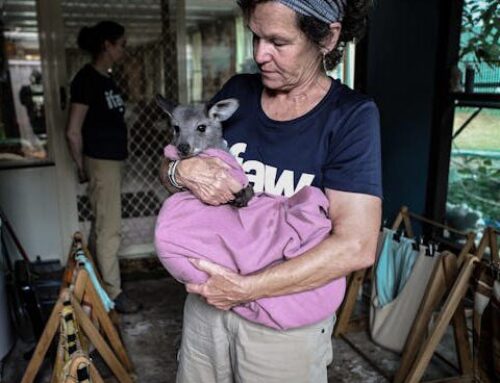Engaging in hobbies offers a way to maintain independence and stimulate everyday joy for retirement-age seniors as they accept being in a phase of life where they have more time to enjoy personal pursuit. Even better news is that hobbies not only occupy the mind but also play a significant part in promoting better health for seniors. So, why not discover new interests and passions to brighten up the golden years?
Why Hobbies Matter for Senior Health
The benefits of seniors participating in hobbies extend far beyond simply passing time. Making time for a hobby has been linked to lower levels of depression as seniors age – and they may even prevent “the senior blues” for some aging adults.
Many studies point to a common symptom of poor mental health and senior depression is losing interest and joy in doing things you enjoyed in the past. Known as anhedonia, this symptom is one of the first signs of depression and one that often can’t be alleviated through prescribed anti-depressant medication.
Finding time to explore personal interests and simple pleasures like a hobby or a lifelong learning activity can go a long way in maintaining mental health. Here are a few more ways that hobbies can improve senior health:
Stimulation of the Mind – Hobbies like picking up a new language or playing an instrument often involve learning that keeps the mind active and engaged, helping to slow down mental decline.
Physical Exercise – Many hobbies incorporate an element of physical activity, which helps seniors maintain body fitness and flexibility.
Improved Quality of Life – Engaging in enjoyable activities boosts emotional well-being, cutting down on feelings of loneliness and depression. Having a sense of purpose in life gives seniors a reason to get each morning and enjoy the day.
Building Social Connections – Joining clubs or groups related to hobbies like gardening, dancing, volunteering, etc., facilitates social interactions, which combat potential isolation.
Ideas for Fun Activities to Keep Active and Stay Sharp
Pursuing hobbies helps many seniors to stay mentally sharp and physically fit as they age. Following are some ideas for hobbies that seniors might find exciting, rewarding, and suitable for their skills and health condition.
Gardening – It’s a great way to enjoy nature, stay active and, as a bonus, grow your fruits, veggies, or flowers. Container gardening or raised beds can be good alternatives for those with mobility issues.
Photography – With a smartphone or a digital camera, seniors can capture and preserve cherished moments. It also encourages them to explore the outdoors and appreciate the little things in life.
Painting or Drawing – Artistic expressions can be therapeutically beneficial and a joyful way to express feelings. It instills a sense of accomplishment and can be done at any pace.
Learning a New Language – Stimulates cognitive abilities, enhances memory, and might even prepare you for a trip to a country whose language you’ve learned!
Yoga – An excellent hobby for physical and mental health. It enhances flexibility, encourages relaxation, and can be adjusted according to the individual’s ability.
Bird Watching – Promotes relaxation while spending time outdoors and can be a gentle introduction to wildlife and nature.
Genealogy – Researching family history can be a rewarding hobby involving puzzles, mysteries, and stories from the past. Websites and online community forums make it easier to unfold family histories.
Cooking or Baking – Trying new recipes or recreating traditional ones can be enjoyable. It stimulates the senses and results in tasty treats, and its end products can be shared with friends and family, sparking social interactions.
Choosing the Right Senior Hobby
Discovering a mentally stimulating or physically active hobby can pose a challenge, especially when an aging senior’s former interests have become unreachable due to lifestyle. The key piece of advice to bear in mind is to be patient. If you’re a senior or caring for a senior loved one, you might have to give several hobby suggestions a shot before landing on one that suits perfectly. Adopt an open-minded approach to venturing into uncharted territories of interests and stay persistent; don’t allow any initial setbacks to discourage you.
If team involvement was your forte in pre-retirement life, participating in a club or organization could be a fulfilling hobby. Perhaps you were inclined towards the artistic facets of your job? Then leisure activities involving creativity might meet similar desires.
Consider seeking advice from friends or family. Given their familiarity with your preferences, they may offer insightful suggestions for activities fitting your taste. They can also introduce you to their favorite pastimes. Embarking on a new venture with a dear one, even when their hobbies differ from yours, can turn out to be enjoyable.
Engaging in hobbies is an invaluable method to exploit your free time, socialize, and enhance physical, cognitive, or emotional health as you advance in age. Whether you unearth novel interests or delve deeper into the hobbies that have long held your fascination, it’s vital and justified to allot time to yourself and pursuits providing you pleasure.
At Amada Senior Care, our trained and compassionate caregivers are here to support you or a senior loved one in undertaking any hobby in the safest and most enjoyable way possible. Remember, the primary goal is to have fun and enjoy the process. So, don’t hesitate to explore new interests and make your senior years exciting!
“Why Hobbies Are Good for Senior Health,” edited by Michelle Flores, Amada blog contributor.



